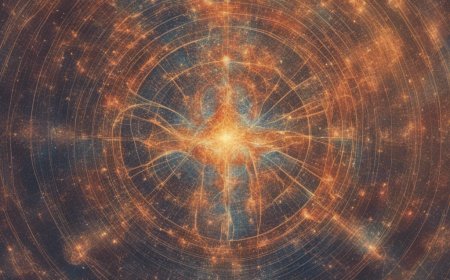Connecting the Dots: A Guide to Understanding Causality for Reseach and Everyday Life
Discover the role of causality in our lives and learn how understanding cause and effect can help you make better decisions. Explore the impact of causality in various fields, from economics to history.

What is Causality?
Causality is the relationship between causes and effects. It's a fundamental concept in science, but it also has implications for our everyday lives. Causality can be described as an event that happens because of another event or set of events. For example, if you drop your phone and it breaks, then dropping your phone caused the broken screen. The cause is what happened first (dropping), while the effect is what happened next (breaking). In this case, there are two types of causality: temporal and logical. Temporal causality refers to things happening in order; one thing must come before another for them both to occur at once--you can't drop something without first picking it up! Logical causality means that one thing must happen before another even though they don't occur at exactly the same time--if your friend wants some ice cream from Dairy Queen but doesn't have any money on him right now so he asks someone else who does have some cash on hand instead...well then maybe we'll see how far along we get with this analogy before we need more examples!
How Does Causality Work?
Causality is a concept that has been used by scientists, philosophers, and everyday people for thousands of years. It's important to understand how causality works because it can help us make sense of the world around us.
Causality in Science
The scientific definition of causality states that one event causes another event when there is no other possible explanation for why the first event happened. For example: if you drop an apple from a tree and it falls to the ground at 9:00 am every day except for one day when it rains instead, then we would say that gravity (the force pulling down) caused this apple to fall down rather than any other factor like wind or air pressure pushing up on its stem. In this case, there was no other cause besides gravity acting upon our apple; therefore we can conclude that gravity caused its descent!
What is the Difference Between Correlation and Causation?
Correlation and causation are two terms that are often confused. In order to understand the difference between correlation and causation, it's important to understand what each term means.
Correlation refers to a relationship between two or more variables in which one variable changes as another variable changes. For example, if you were looking at data about rainfall patterns in different cities over time, you might find that there was a positive correlation between the amount of rain and temperature--the warmer it was outside (or colder), the more likely it would be for that city to receive precipitation from clouds passing overhead.
In contrast with correlation, causation refers specifically to cause-and-effect relationships between events or phenomena; this means that one event leads directly into another event without any intermediate steps being taken along the way. For example: If someone drinks alcohol regularly enough over time then they may develop liver disease because alcohol consumption causes liver damage over time; however, drinking too much alcohol does not necessarily mean someone will get cancer since there are many other factors involved such as genetics/family history etc...
Examples of Causality in Everyday Life
Causality is a concept that can be applied to many aspects of our lives. It's important to understand how causality affects your relationships, your job, and even the way you raise children at home.
Causality in relationships:
When one person feels as though they are being treated unfairly by another person, it can lead to feelings of resentment towards that individual. If this happens often enough, it may cause them to cut off ties with their partner or friend altogether--or at least reduce their interactions with them significantly (e.g., by only speaking when necessary).
Causality at work:
If an employee doesn't feel like his boss values his work efforts enough, he may start slacking off on projects so as not to get noticed by management as much anymore; this could lead him down a slippery slope where other employees start noticing him less favorably too because he never finishes anything! Eventually, everyone will stop working together effectively because no one wants anyone else getting credit for any successes since everyone thinks they'll just take advantage anyway...and so on until nothing gets done ever again!
How Does Causality Affect Our Decisions?
Causality is a concept that plays a huge role in our decision-making process. It's the reason why we're able to make choices and take risks, but it also has its drawbacks. Causality is important because it allows us to hold people accountable for their actions. If someone breaks your window with a baseball, you can sue him or her for damages--and if they were drunk at the time of their actions, this would be considered relevant information during trial proceedings (though how much weight it holds depends on your jurisdiction). Causality also helps us assess risk: if I know that taking an umbrella will keep me dry on rainy days but not necessarily sunny ones, then I'll probably bring one along when there's any chance of precipitation at all!
How Does Causality Impact Our Health?
Causality is a powerful concept that can help us understand how our lives are connected to each other, and what we can do to improve them. It's also important to note that causality is not limited to the physical world; it also extends into the mental and spiritual realms. For example, if you have a habit of thinking negative thoughts, then those thoughts will manifest themselves in your life as negative experiences or circumstances (e.g., getting fired from your job). In this case, causation occurred because one thing led directly to another (your negative thoughts caused your firing). In addition to being able to identify causality in our own lives--and hopefully change it for the better--we can also use this knowledge when trying new things like eating healthier foods or exercising regularly; these changes may seem difficult at first but over time will become easier as long as we stick with them!
What is the Role of Causality in Economics?
Causality is a powerful tool in economics, as it allows us to understand the relationship between different economic factors. For example, if you want to know why the stock market is going up or down, you can look at how much money consumers are spending on goods and services. If they're spending more than they were previously (and thus increasing demand), then this will cause prices for those goods and services to rise. Causality also helps us understand how economic policies affect people's lives: if we implement an increase in taxes on luxury items like jewelry or cars, then this will decrease demand for those products--which means less revenue coming into companies that make them!
What is the Role of Causality in Politics?
Causality can be used to understand public opinion, voting behavior, and policymaking. Political networks are analyzed to understand public opinion, voting behavior, the diffusion of policy ideas, bill sponsorship, and other areas of interest in politics to determine causality. Furthermore, causality and freedom in philosophy and politics throughout history have been linked, and causality is considered a mental category that allows us to order the data perceived by the senses, thereby making experience possible.
What is the Role of Causality in History?
The study of history is an important part of understanding the world around us, but it can be difficult to see how causality works in historical events. It's easy to think that things just happened because they did--that there was no reason behind them and no way they could have been avoided. But this isn't true; every event has a cause that led up to it, even if we don't know what that cause was or why it happened as it did. For example:
If you drop a glass on your kitchen floor and break it into pieces, then someone must have dropped the glass from above onto your kitchen floor--and if no one dropped anything from above onto your kitchen floor then there wouldn't be any broken glasses lying around!
If there were no dinosaurs roaming around Earth millions of years ago then there would still be some kind of animal living where those dinosaurs used to live today (maybe even humans!). So if we look back far enough into our past we would find some kind of creature living where modern humans now live today instead!
Conclusion
In conclusion, causality is a fundamental concept that can be applied to many different areas of life. Understanding causality will allow you to make better decisions, avoid common pitfalls and help you achieve success in your endeavors.
Disclaimer: The image(s) featured in this article are for illustrative purposes only and may not directly depict the specific concepts, situations, or individuals discussed in the content. Their purpose is to enhance the reader's understanding and visual experience. Please do not interpret the images as literal representations of the topics addressed.
What's Your Reaction?













































































































